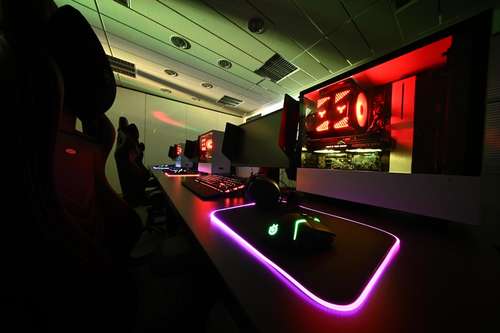Nintendo has once again demonstrated its knack for strategic moves in the gaming world. The relocation of Switch 2 production from China to Vietnam comes as a calculated decision to manage rising tariffs and streamline manufacturing. Many gamers and industry experts are buzzing with curiosity about the impact of this move on the beloved nintendo switch, especially as we watch trends shift in electronics production. This is a turning point that speaks not only to cost-saving tactics but also to a commitment to supply chain stability in a turbulent global market.
Whenever a market giant like Nintendo decides to change gears, it sends ripples throughout the entire industry. Everyone from casual players to seasoned investors is wondering: could this move portend shifts for other consoles like the ps5, playstation 5, or even the x box series x? These kinds of decisions might seem simple on the surface but hide a world of economic strategy and global politics beneath them.
Nintendo’s Strategic Shift to Vietnam
The decision to move production to Vietnam wasn’t made overnight. Faced with increasing threats of tariffs on products manufactured in China, Nintendo evaluated its options and determined that Vietnam offered a promising alternative. Vietnam’s growing reputation in the electronics industry makes it an attractive prospect for companies looking to ensure that their supply chains remain unhindered by international trade disputes.
This relocation isn’t just a change of scenery for the Switch 2. It’s a strategic pivot that reflects broader trends in global manufacturing. As pressures from international trade disputes mount, relocating production helps ease potential price hikes and ensures that products can hit the market without unexpected delays. For gamers, this means less anxiety about shortages or significant price increases and more confidence in seeing their next favorite console on store shelves.
Even industry veterans are taking note. A friend of mine mentioned, 'This is a smart move by Nintendo, one that shows they’re preparing for future challenges while still catering to what their fans want.' It’s like switching from a bumpy dirt road to a smooth highway - the journey might be the same, but the ride becomes a whole lot more comfortable.
Understanding the Supply Chain Implications
By moving production to Vietnam, Nintendo is aiming to stabilize its supply chain and reduce disruptions. This move is not just about avoiding tariffs—it’s also about establishing a more resilient logistical system that can withstand geopolitical uncertainties.
Consider this: imagine planning a road trip where every stop is uncertain. Shifting manufacturing to a country with a robust and growing tech industry is like choosing a route known for its reliability and minimal delays. Vietnam, with its established network of electronics production, offers a promising alternative that can buffer the impact of global trade winds.
For companies like Nintendo, avoiding the complexities of international tariffs is crucial. The fear of increased tariffs from China was a significant driving force behind this decision. With the cost of production under tighter control, Nintendo can continue to offer competitive pricing on its consoles, be it the much-awaited nintendo switch or even components that indirectly influence the pricing of other consoles like the xbox series x.
At the end of the day, when you’re a company that has shipped millions of units of products like the playstation 5 and pac man era collectibles, resilience in your supply chain is nothing short of essential. This move might just be the beginning of a broader trend that could see more businesses exploring new manufacturing frontiers.
The Bigger Picture: Industry Impact and Future Outlook
While the immediate benefits of relocating production are clear—cost control, tariff avoidance, and supply chain stability—the longer-term impacts may resonate throughout the industry. Other tech companies, not to mention competitors in the console market such as x box series x and xbox series s, might well look to Vietnam as a model for future production strategies.
In essence, Nintendo’s move is a bellwether signal for the industry. It reflects a growing trend where companies are ready to explore new geographic areas for manufacturing. When you see major players taking such risks, it’s natural to wonder if this could initiate a wider shift away from traditional manufacturing hubs like China. The industry is watching closely, and so are gamers.
This decision has even spurred discussions on social media, where fans eagerly discuss if a more stable supply chain could mean fewer production delays for the next generation of the nintendo switch. After all, as a fan, you never want to wait too long for that next hit console, just as you wouldn't want to wait endlessly for the newest edition of your favorite game on either xbox series s or playstation 5.
The implications extend beyond just production costs. With Vietnam’s craftsmanship and technological growth, we might see innovations or changes in the production techniques of future consoles. This isn’t just a manufacturing shift; it’s an evolution in how gaming hardware is produced, potentially leading to even better builds and quality controls in the future. It reminds one of how quickly trends change in tech – much like switching from a clunky old pac man cabinet to a sleek, modern gaming experience.
What This Means for Gamers and the Gaming Community
Ultimately, you might be asking: how does this affect me? For the average gamer and tech enthusiast, Nintendo’s relocation strategy is a positive development. It’s not just about where the product comes from but ensuring that the products you love are available when you need them. The shift to Vietnam is designed to keep production costs in check and maintain a steady flow of consoles—whether it’s the next nintendo switch or accessories that compete with the playstation 5 and xbox series x.
Imagine going to your local store and confidently knowing that there will be sufficient stock of your favorite console, regardless of global trade tensions. This move offers a promise of reliability, much like your favorite retro game that never goes out of style. It might also encourage other companies to think outside the box and explore alternative manufacturing locations, ensuring that the competitive spirit of the gaming industry remains alive and well.
Moreover, it gives us hope that the future might bring more competitive pricing and innovation in hardware design. With increased competition from giants like x box series s and others, every move matters. You can almost hear the collective sigh of relief from gamers, knowing that the industry is continually adapting to ensure that products remain accessible and current.
Looking Ahead
While it’s a bold move, the future looks promising for Nintendo’s Switch 2 production. Relocating to Vietnam is not just a reaction to external pressures but a proactive strategy to secure the future of the gaming experience we all treasure. As one navigates the labyrinth of global manufacturing, decisions like these remind us of the intricate connections between commerce, technology, and the passion of millions of gamers worldwide.
In the coming years, it will be interesting to see how this move influences other tech companies and if it sparks further innovation within the competitive console market. In a way, each strategic relocation is like a small bet on the future—a bet that the next console, whether it’s another iteration of the nintendo switch, a refreshed playstation 5, or even the evolving xbox series x and xbox series s, will keep pace with the demands of modern gaming.
As we watch this space, it's clear that navigating international trade and production is no simple game. Nintendo’s decision to relocate Switch 2 production is a wake-up call for improving supply chains, cutting costs, and ensuring that the gaming industry remains resilient no matter where global conflicts or tariffs arise. With Vietnam stepping into the spotlight, the future of gaming feels both dynamic and secure!




